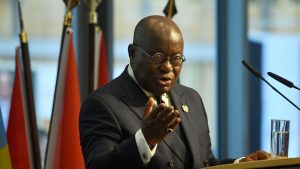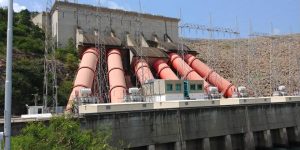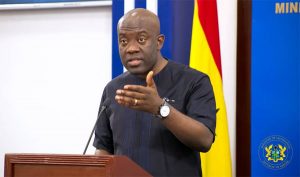President Nana Addo Dankwa Akufo-Addo on Tuesday said the government, through the Ministry of Finance, has made an additional budgetary allocation of one hundred million cedis (GH¢100 million) to the Ministry of Tourism, Arts and Culture.
That, he said, was to enable the Ministry to carry out its planned programmes and help to address key constraints such as sector operators’ skills revitalization, low quality of tourism assets, targeted transformation of Ghana’s tourist beaches, a comprehensive marketing brand and promotion strategy and reducing other high costs of doing business in the sector.
The President said this at the launch of the Domestic and Regional Tourism programme in Accra, on the theme: “#Experience Ghana, #Share Ghana.”
President Akufo-Addo said the initiative was aimed at helping the economy recover from the ravages of COVID-19 and would target increasing arrivals of 600,000 by 2022 and one million by 2024.
The West African regional target aimed at increasing arrivals from 180,000 presently to 400,000 by 2024.
He said global tourism suffered its worst year on record in 2020, with international arrivals dropping by some 74 per cent, according to the latest data from the World Tourism Organization (UNWTO).
Destinations worldwide welcomed some one billion fewer international arrivals in 2020 than in the previous year due to an unprecedented fall in demand, and widespread travel restrictions as a result of COVID-19.
“Ghana’s tourism and hospitality industry were equally affected and severely disrupted by COVID-19. Indeed, domestic arrivals in 2020 reduced to 240,000 from some 600,000 arrivals in 2019. International arrivals also fell by 70 per cent to 355,108 in 2020, from 1.13 million in 2019.”
The President said the entire value chain, ranging from airlines, car rentals, hotels, restaurants, events and conference organizers, attractions, tour operators, travel agencies, craft vendors, to online travel entities, suffered the collapsing consumer demand due to restrictions imposed to curb the spread of the disease.
He said, “A recent survey by the Ghana Tourism Federation revealed that several informal small businesses have shut down, whilst restaurants are experiencing an average drop in the patronage of 60 per cent. Average hotel occupancy has also dropped significantly.”
President Akufo-Addo said both the UNWTO and the World Bank forecast a modest recovery of international tourism to pre-pandemic levels, especially those dependent on Europe and the United States of America as the major source markets.
He said the programme would entail an 18-month campaign underpinned by a regional drive, promotion of city tours in Accra, using double-deck bus and the old “boneshaker” to whip up interest, create an industry-wide tourism wholesale package for on-selling by operators.
It would also include reactivating tourism clubs in schools to drive school excursion, “Let’s Go Ghana Roadshows” in Nigeria, activating bilingual offerings and signages at key sites and hotels, partnering key media to create awareness and improve tourism culture, packaging and marketing Ghana’s festivals, and stimulating demand through ongoing tactical segmented campaigns.
He said through creativity and innovation, the programme would help create the necessary numbers of jobs for the youth, and urged the Ministry and the GTA to collaborate with public and private sector entities to remove constraints to the development of tourism in the country.
“Fortunately, Ghana abounds in major heritage, arts and culture resources such as forts and castles, national parks, palaces, wildlife and festivals amongst others that can be promoted and marketed for tourist purposes.”
Dr Ibrahim Mohammed Awal, Minister of Tourism Arts and Culture, said the development of a strong local tourism sector had become even more important with COVID-19 and its attendant uncertainties and the fall in demand and widespread travel restrictions.
He said over the past few years, domestic tourism had seen steady growth in Ghana, peaking in 2019 during the “Year of Return” initiative, and as part of ongoing efforts to resuscitate the industry, the Ministry and its agencies were refocusing on domestic and regional tourism promotion.
Dr Awal said the initiative was aimed at promoting and strengthening effective sectorial collaborations which would enable a seamless and affordable tourism experience for Ghanaian tourists in the domestic market and consolidate Ghana’s position as the preferred destination for leisure, meetings, incentives, conferences and exhibition in the ECOWAS sub-region.
He said the Ministry intended to have a comprehensive approach towards tourism and as such was collaborating with other ministries for a successful campaign.
“We are planning that by the end of this year, each of the 16 regions would have at least two iconic tourism site to promote both domestic and international tourism. We are also reviewing our tourism policy to align with demands and we are creating new tourism packages for Ghanaians.”
Dr Awal said the packages would include educational, business, and religious tourism, saying through this they would be creating a sense of national unity and cohesion and also raise income from the urban area.







